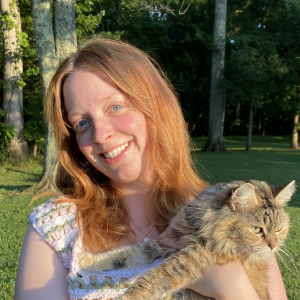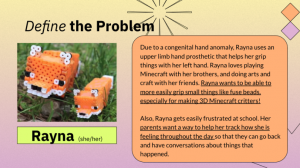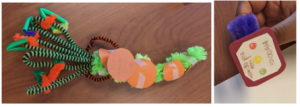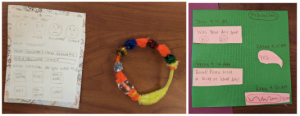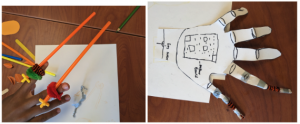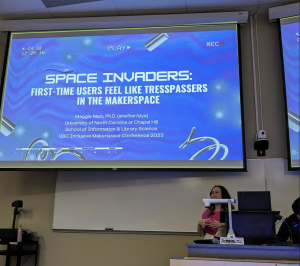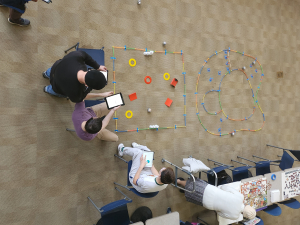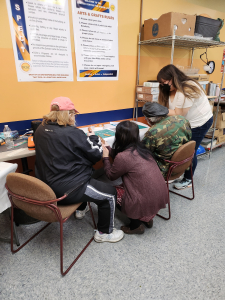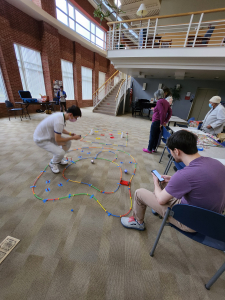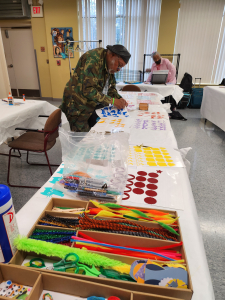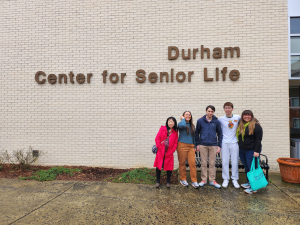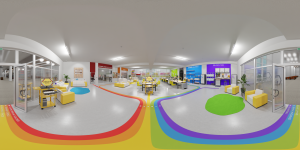Snowflakes, Cocoa & Community
To close out the semester, the Equity in the Making Lab hosted a fun, relaxing event where students could unwind and learn a new craft: making snowflakes with a Cricut machine while enjoying hot chocolate. The event was a great success for drawing in students.
At the event, participants had the option to create traditional paper snowflakes with scissors or use the Cricut to design more intricate patterns. Initially, some students were hesitant to try the Cricut. However, after a brief demonstration and reassurance that it only took a few minutes to learn, many were eager to give it a try. Once they got comfortable with the machine, several students stayed longer to experiment with different materials, such as vinyl, and explore Cricut’s drawing feature.

The casual nature of the activity and the opportunity to try something new in a low-pressure environment helped make students feel more comfortable using the lab’s resources. Throughout the event, many students asked about the lab’s hours and how they could use the space in the future, which gave us a perfect opportunity to share information about upcoming lab hours and other programming for the next semester.

In line with our mission of “Equity in the Making,” the event was designed to foster a welcoming atmosphere. A welcoming space is one that not only offers accessible programs but also creates a supportive environment where everyone feels invited to participate. We made sure to offer a familiar, simple activity that everyone could enjoy, greeted students as they entered, and displayed visual examples and materials that encouraged them to dive into the making process. By creating a space that felt both approachable and engaging, we were able to introduce students to the lab in a way that was both fun and informative.

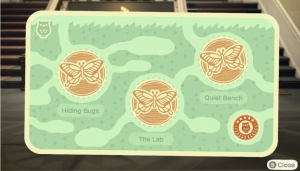
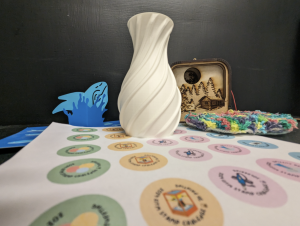
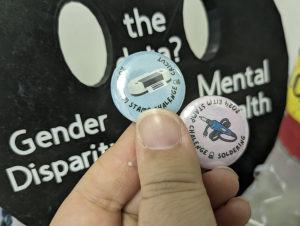
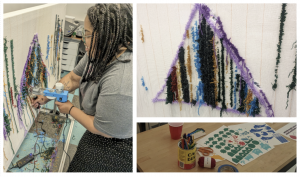
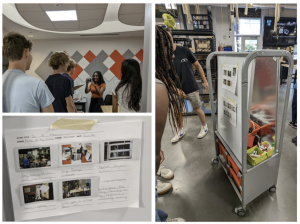
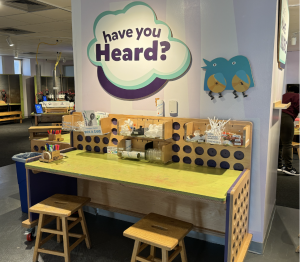
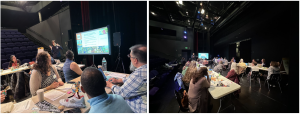
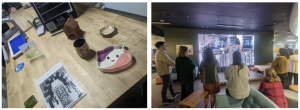
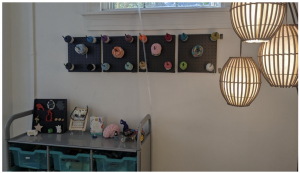
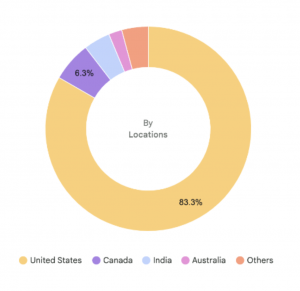
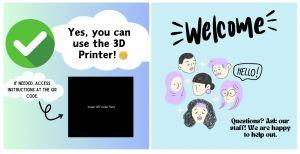
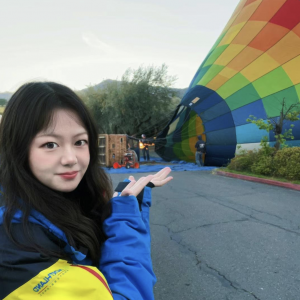 Luxin (Grace) Zhang (She/Her)
Luxin (Grace) Zhang (She/Her)